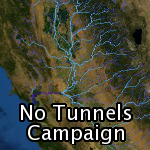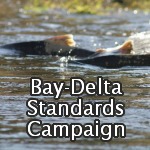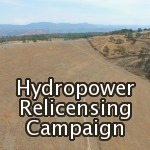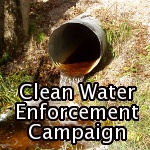On June 27, 2024, CSPA and allies submitted a letter to Merced Irrigation District (Merced ID). The letter was written in response to Merced ID’s recent Notice of Intent (NOI) to rely on the Final Environmental Impact Statement (FEIS) produced by the Federal Energy Regulatory Commission (FERC) in 2015 for the relicensing of the Merced River Hydroelectric Project and Merced Falls Hydroelectric Project (Projects).
Merced ID’s decision to rely on FERC’s FEIS is a continuation of its efforts to avoid compliance with California Environmental Quality Act (CEQA) requirements and Section 401 of the Clean Water Act. The environmental standards required by the Clean Water Act are more stringent than those applied by FERC.
In May 2024, the State Water Board set aside for procedural reasons the joint water quality certification (certification) for the Projects. The Board acted following a lengthy battle in federal courts with Merced ID and other water agencies that successfully defended the State Water Board’s authority to issue certifications as part of the FERC relicensing process.
Merced ID must produce an environmental review document under CEQA as part of the new certification process.
FERC’s FEIS issued under the federal National Environmental Policy Act (NEPA) does not satisfy CEQA requirements. Merced ID proposes a supplement to FERC’s FEIS, but the proposed scope of the supplement would not be adequate to support the State Water Board’s certification process.
CSPA and allies call upon Merced ID to expand the scope of the CEQA analysis to cover the update of the Bay-Delta Plan. CSPA and allies also call out the need for analysis of new information known since 2015 regarding native fish species in the upper Merced River and the fact that the lower Merced River has run dry in four out of the last 10 years.
A complete CEQA document for these Projects must also include proposed mitigation measures. CEQA requires mitigation of significant impacts where feasible. NEPA requires only disclosure of significant impacts.
CSPA has been involved with FERC relicensing of California’s hydroelectric projects for over three decades. CSPA works to ensure that the state’s hydroelectric projects are managed to protect fisheries, aquatic habitat, and public health. CSPA has also worked particularly hard over the last five years to defend the state’s authority to place conditions on hydroelectric projects under Section 401 of the Clean Water Act.









